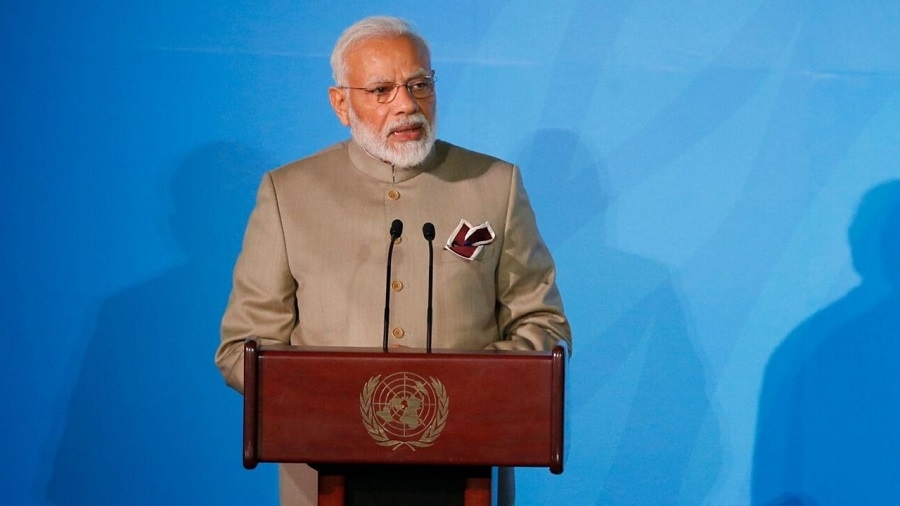NECESSARY GOAL
| Date :25-Sep-2019 |

THE pledge Prime Minister Mr. Narendra Modi took at the United Nations Climate Action Summit in New York to raise India’s target for non-fossil fuel by more than double makes a terrific sense in view of the political machinations being woven around the issue by many global leaders. In a no-nonsense manner, Mr. Modi declared that India would not peg itself at the previously-agreed mark of 175 GW of non-fossil fuel and stretch itself to the hilt to make the best possible contribution to the global fight to save the climate by stalling the undesirable change taking place in the environment -- like global warming leading to multitudes of complex issues. Even though the target India now has set for itself is ambitious, about which many experts are reportedly doubtful, it is nevertheless achievable with effort.
The issues dogging the global fight to stall undesirable climate change and bring the process of environmental correction back on track are certainly complex and loaded down by political considerations. Most such considerations hover around the issues such as the quantum of correctional load to be shouldered by individual nations. For the past thirty-plus years, this debate is raging -- about how much developing nations are burdening the environment with obsolete technology and how they are constrained to use the old methods since new technology is not available to them due to rich nations’ tendency to keep cornering the technological advantage in order to keep other nations under a pseudo-moral burden. The United States’ threat of withdrawal from the Climate Deal is part of that international politics.
On one count, President Mr. Donald Trump is right that rich nations have to take a bigger burden of collective spending on battle against climate change. But on another count, he is only following his imperialistic instinct about keeping other nations under his thumb by placing them in a moral tight corner that they contribute more to spoiling of the environment, thanks to their old technology. For a while, India led the developing nations in blaming the rich nations on the technological count. It still has its own point of view not dictated by any vested interest.
But, under Prime Minister Mr. Narendra Modi, India has taken some positive steps that to some may appear ambitious. But the world has not missed these efforts. That is the reason why there is an international impression that India will lead the global effort on climate change. For the past five years, India has talked positively about its own role in issues of climate change -- in terms of economics, in terms of technology, and also in terms of national commitment to regulate carbon footprint at reasonable, permissible and tolerable levels. The pledge to hike non-fossil fuel target to more than double is part of that proactive approach India has adopted. There is hardly any other nation adopting such an approach to a global issue that really tests everybody’s commitment to the concept of collective welfare beyond narrow national interests. This pro-active participation in the collective front has now become India’s signature on many critical issues besides environment.
Terrorism is one such concern India never misses to highlight. The sense of collectivism Mr. Modi has been able to introduce in the international discourse is one of his best contributions to the global challenge, so much so that a shrewd nation like the United States also feels constrained to stand by when India takes the issue to various global platforms for deeper discussion and subsequent action together. This goal of larger and wider good is a necessary attribute of India’s policy-approach towards the current world issues. However, this does not stem from an ordinary desire to attain global leadership, but from a more sublime thought that the world is nothing but a large global family -- Vasudheiva kutumbakam!